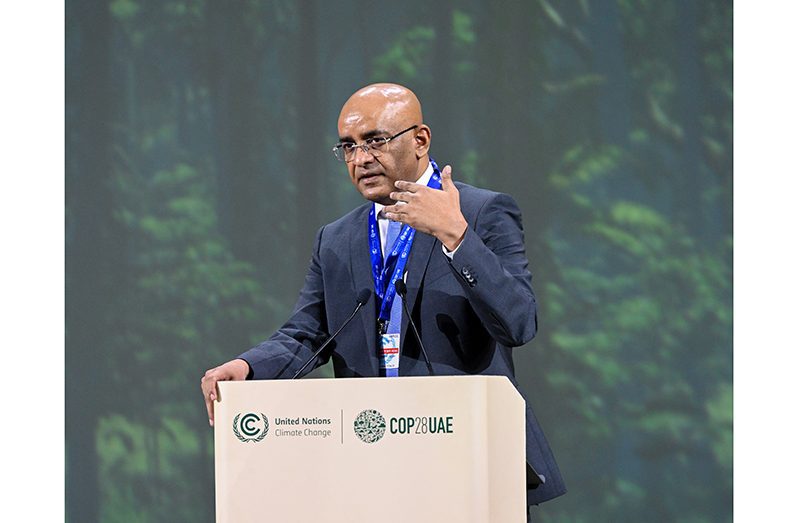–but is in no rush for this, Vice-President Jagdeo says; believes country has ‘strong product’
BOASTING a “strong product” in the form of forest conservation, Guyana is now looking forward to another sale of its carbon credits, but the country is in no rush and officials intend to only enter into a deal which has favourable conditions.
At a press conference last Thursday, Vice-President, Dr. Bharrat Jagdeo said people are interested in Guyana’s carbon credits.
“There is no urgency, there is no pressing, no pressure on us to do so; we are in a comfortable position to explore the markets that way because we have a strong product. We have a strong product.
“We’re fortified by a solid agreement that defied market expectations and now we have a few people with interest. The problem with the market, though, is because of what happened at COP, the market softened a bit because of COP, but we believe through bilateral deals, similar to the one that we did with Hess, we’d be able to advance the sale,” Dr. Jagdeo said.
In 2022, the architecture for REDD+ Transactions (ART) issued the world’s first trees credit, enabling the country to enter into an historic agreement with Hess Corporation, whereby the oil giants opted to purchase about one-third of all Guyana’s credits.
Through Guyana’s sale of carbon credits, the country is able to generate funds to support climate adaptation and developmental projects in the hinterland regions of the country.

In 2023, the country received its first payment of US$75 million (or G$15.6 billion). Some 15 per cent of this was allocated to community/village-led programmes for Indigenous Peoples, while the remaining 85 per cent was allocated for adaptation measures outlined in the country’s Low Carbon Development Strategy LCDS.
While Guyana has entered a voluntary market, Dr. Jagdeo maintained that a structured market could see the country and many others such as Guyana, earning more.
Dr. Jagdeo had attended the 28th Conference of Parties to the United Nations Framework Convention on Climate Change (COP28) in Dubai last November and had told reporters he was disappointed that no headway was made to advance the carbon market.
In a nutshell, carbon markets are trading systems in which carbon credits are sold and bought.
Since 2007, Guyana has been lobbying for a structured, carbon market-based mechanism to simultaneously preserve its forests and pursue development.
Guyana, however, has established its own unique mechanism, through the creation of one of the first Low Carbon Development Strategies in the world, Dr. Jagdeo said.
While Guyana has entered a voluntary market which will see the country raising a minimum of US$750 million for preserving its forests as part of the Hess agreement, a structured mechanism could create a “greater incentive” for Guyana and other developing countries.



.jpg)









